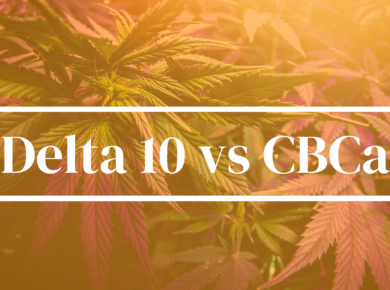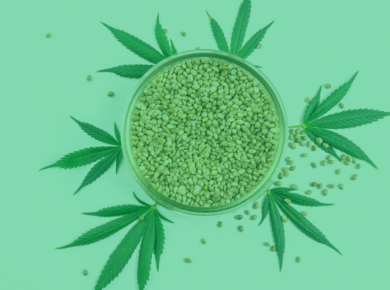Delta 8-THC and CBCa are both intriguing cannabinoids sourced from the hemp and cannabis realms. The intrigue lies not just in their origin but in their distinct molecular structures and the myriad effects they bring forth.
Delta 8-THC, often abbreviated as Delta-8, is the more enigmatic cousin of the famed Delta 9-THC. While it mirrors much of Delta 9’s structure, its psychoactive kick is notably milder. Though Delta 8-THC is less abundant in the hemp tapestry, it’s been harnessed and even synthesized for an array of products.
In contrast, CBCa, short for Cannabichromenic Acid, is the foundation upon which CBC (Cannabichromene) stands. Younger hemp plants generously house CBCa. A dance with heat, known as decarboxylation, transforms it into the non-psychoactive cannabinoid, CBC. Compared to THC and CBD, CBC remains a relatively uncharted territory.
At the molecular level, while both Delta 8-THC and CBCa hail from the hemp and cannabis families, they diverge in chemical makeup, concentrations, and effects. Delta 8-THC stands out as a rarer, psychoactive element, while CBCa, a non-psychoactive precursor, graces the plant in higher amounts.
Many States allow hemp derived cannabinoids under the 2018 Farm Bill as long as they contain less than .3% D9 THC. Some States have explicitly banned cannabinoids like Delta 8, so check your local rules and regulations before purchasing.
Here’s the rules for Kush.com and more details
Frequently Asked Questions (FAQs)
What Defines Delta 8-THC within the Hemp Spectrum? Delta 8-THC is a subtle presence in the hemp landscape. As an isomer of the prominent Delta 9-THC, it offers a gentler psychoactive touch. Many regions, where Delta 9 faces restrictions, welcome Delta 8-THC, especially when extracted from hemp.
How Does CBCa (Cannabichromenic Acid) Associate with Hemp? CBCa, the scaffold for CBC (Cannabichromene), is abundant in raw hemp and cannabis. Exposure to heat or sun sees CBCa metamorphose into CBC.
Do Delta 8-THC and CBCa Share Extraction Techniques? While both cannabinoids are extracted from hemp, their paths diverge. Delta 8-THC often undergoes conversion from CBD or Delta 9-THC via chemical processes. In contrast, CBCa is pulled directly from the plant and later morphs into CBC through decarboxylation.
What’s the Legal Landscape for Delta 8-THC and CBCa? Their legal status can be a maze, changing with geography. In many territories, Delta 8-THC enjoys legality, given its hemp origins – a status shared federally in the U.S. CBCa, as CBC’s raw avatar, is generally lawful. Yet, always tread with local laws as your guide.
How Do Their Effects Compare? While Delta 8-THC brings a diluted psychoactive experience compared to Delta 9-THC, CBCa remains passive in its raw state. Upon decarboxylation to CBC, it may introduce a range of effects, steering clear of the psychoactive realms that THC traverses.
Shop
Similar Product Searches You Might Be Interested In:




